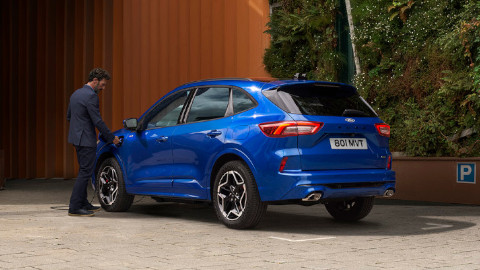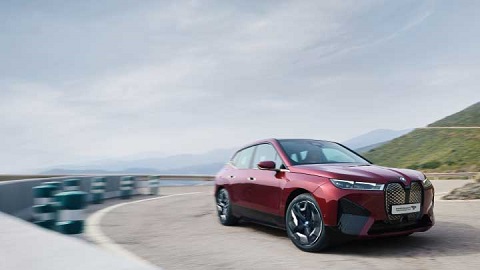Following recent changes to the vehicle emissions test procedure, Plug-in Hybrid (PHEV) vehicles are now subject to stricter requirements under the new Euro6e-bis standards. From the 1st January 2025, these standards now apply to all new PHEV vehicles, while existing models are required to be retested before the 31st December 2025 to determine which group they reside.
In previous iterations of the emissions standards, PHEV vehicles were classified as low-emission vehicles and were therefore beneficiaries of lower BiK rates. However, the new standards see BiK rates increase sharply, particularly for those with lower all-electric driving ranges.
These changes are part of the government’s broader push toward electrification and realistic emissions reporting. The older testing protocols often understated CO₂ output, especially for PHEVs with limited electric range that rely more heavily on petrol engines. The new Euro 6e-bis standard applies stricter lab and real-world emissions testing to ensure that only genuinely low-emission vehicles benefit from favourable tax treatment.
As a result, PHEVs that were once eligible for lower tax bands may no longer qualify due to less efficient real-world performance. This makes the electric-only range and CO₂ output much more important when selecting vehicles for company car schemes.
How much will I have to pay?

How much you’ll pay in company car tax depends on your vehicle’s emissions, as well as its all-electric driving range. Most PHEV vehicles will fall within the 1 to 50g/km CO₂ bracket, so the latter is a primary factor in working out how much you'll pay. There is potential for some PHEVs to fall into a higher CO₂ bracket though, upon retesting.
|
CO₂ (g/km) |
Electric Range (miles) |
BiK 2024–25 |
BiK 2025–26 |
|
0 |
n/a |
2% |
3% |
|
1 to 50 |
> 130 |
2% |
3% |
|
1 to 50 |
70 to 129 |
5% |
6% |
|
1 to 50 |
40 to 69 |
8% |
9% |
|
1 to 50 |
30 to 39 |
12% |
13% |
|
1 to 50 |
< 30 |
14% |
15 % |
Changing BiK rates for low-emission vehicles.
Example: BMW 330e M Sport Saloon (PHEV)
- P11D Value: £45,000
- CO₂ Emissions: 37g/km
- Electric Range: 37 miles
- Income Tax Band: 40%
- BiK Rate Change: +8.33% (12% BiK rate 2024 to 13% BiK Rate 2025)
- Actual Change: +£180 (£2,160 per year to £2,340 per year)
*Approximate figures only, exact change will differ depending on your personal circumstances.
Why does this matter to you?
These changes have a range of impacts on both business owners and fleet managers, as well as registered vehicle drivers. Rising business costs have been adding to total fleet expenses, so staying ahead of any updates can help you save significantly over the long term. You may also want to consider pivoting your company car or salary sacrifice car scheme strategy too, to better benefit your employees should they choose to utilise the schemes.
For drivers of company cars or those on a salary sacrifice scheme, you could see your BiK payments increase significantly depending on the exact vehicle you're considering in the future. If you currently drive a PHEV and want to exchange it like-for-like when it's due for renewal, it's worth thoroughly reviewing the cost estimates to ensure it's a viable option. Alternatively, many are choosing to make the switch to an even lower emissions or emissions-free vehicle, as the BiK impacts are less significant on those vehicles.
How to navigate the changes

The ever-changing regulations and requirements can make fleet or vehicle management difficult, but the sooner you act, the less impact you feel. Familiarise yourself with the new regulations and cross-reference that with the specific data of the vehicles within your fleet. Most good fleet management service providers will offer support too, so it's worth considering calling on their expertise to find the optimal solution.
Having a long-term mindset will also pay dividends in the future, too. Focus on overall vehicle lifetime cycles, rather than short-term, immediate changes - some PHEVs still offer affordable BiK rates, but could switching to an all-electric option sooner be a better approach?
If you already have a PHEV vehicle, then the BiK rate will remain the same, but consider switching to a lower or zero emissions vehicle when up for renewal to ensure your costs remain affordable.
How is Pendragon Vehicle Management reacting?
At Pendragon Vehicle Management, we’re committed to delivering exceptional value and staying ahead of key changes in the fleet and business leasing landscape. In response to the new BiK rates, we’ve proactively updated our salary sacrifice and company car schemes to feature vehicles with competitive, tax-efficient BiK profiles — helping your business keep costs under control.
If you're an existing customer, we're here to offer personalised guidance based on your current fleet. As noted above, if you already have PHEVs on your scheme, your BiK rate will typically remain the same unless the vehicle is retested or replaced. When it comes time to renew, our team will help you explore your options and ensure you select a vehicle that aligns with both your operational needs and budget.
If you’re new to Pendragon Vehicle Management and interested in our salary sacrifice or company car solutions, our expert advisors are ready to help. Get in touch today to discover how we can optimise your fleet. And for existing customers, your dedicated account manager is always available to support you with any questions or changes to your vehicle strategy.





